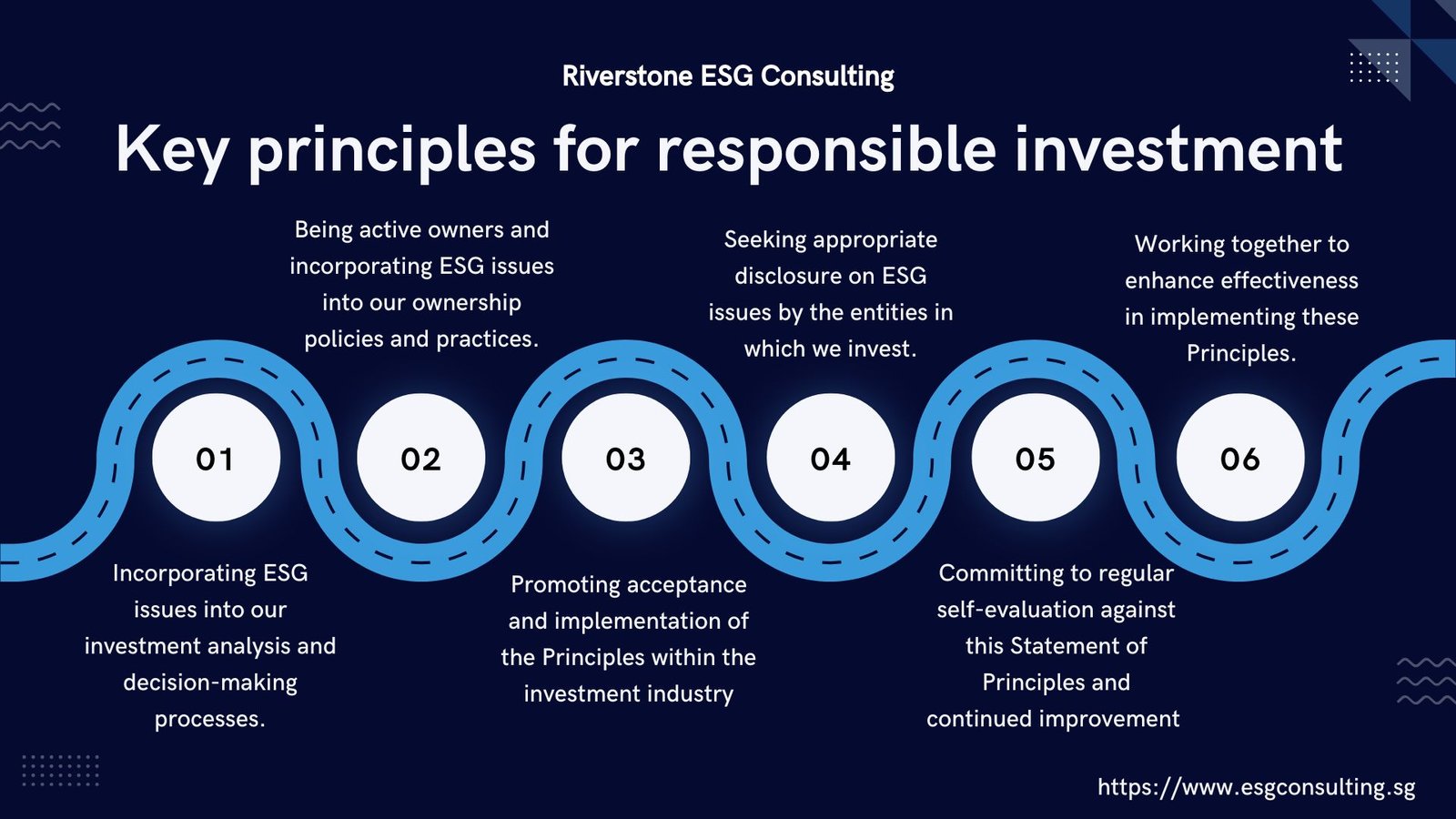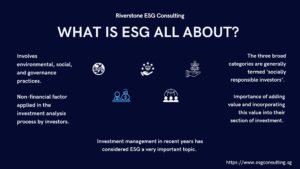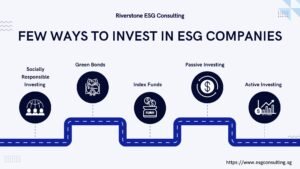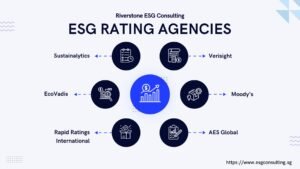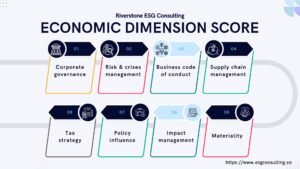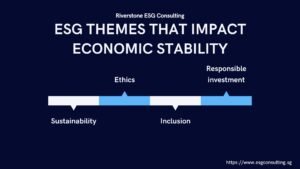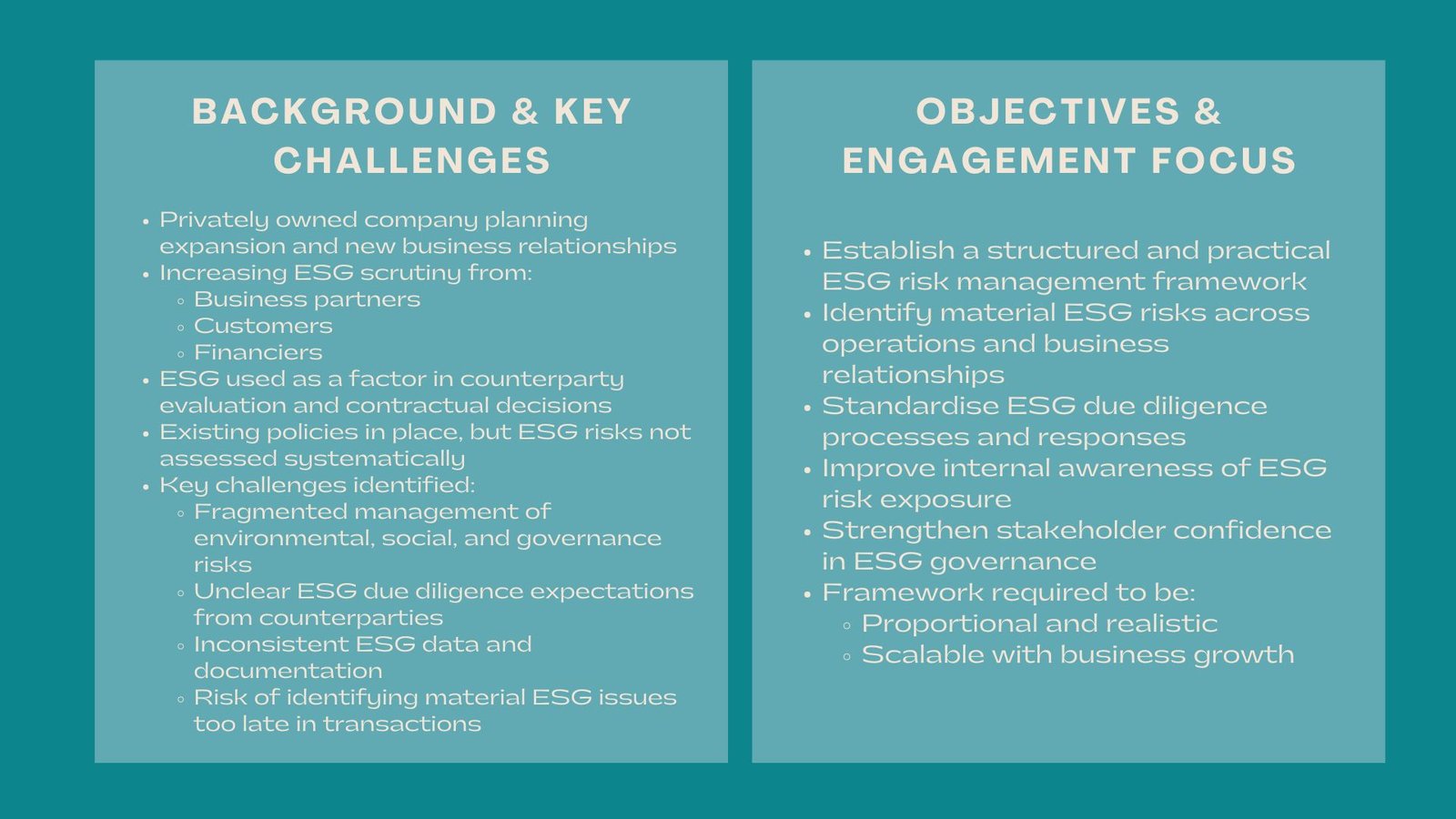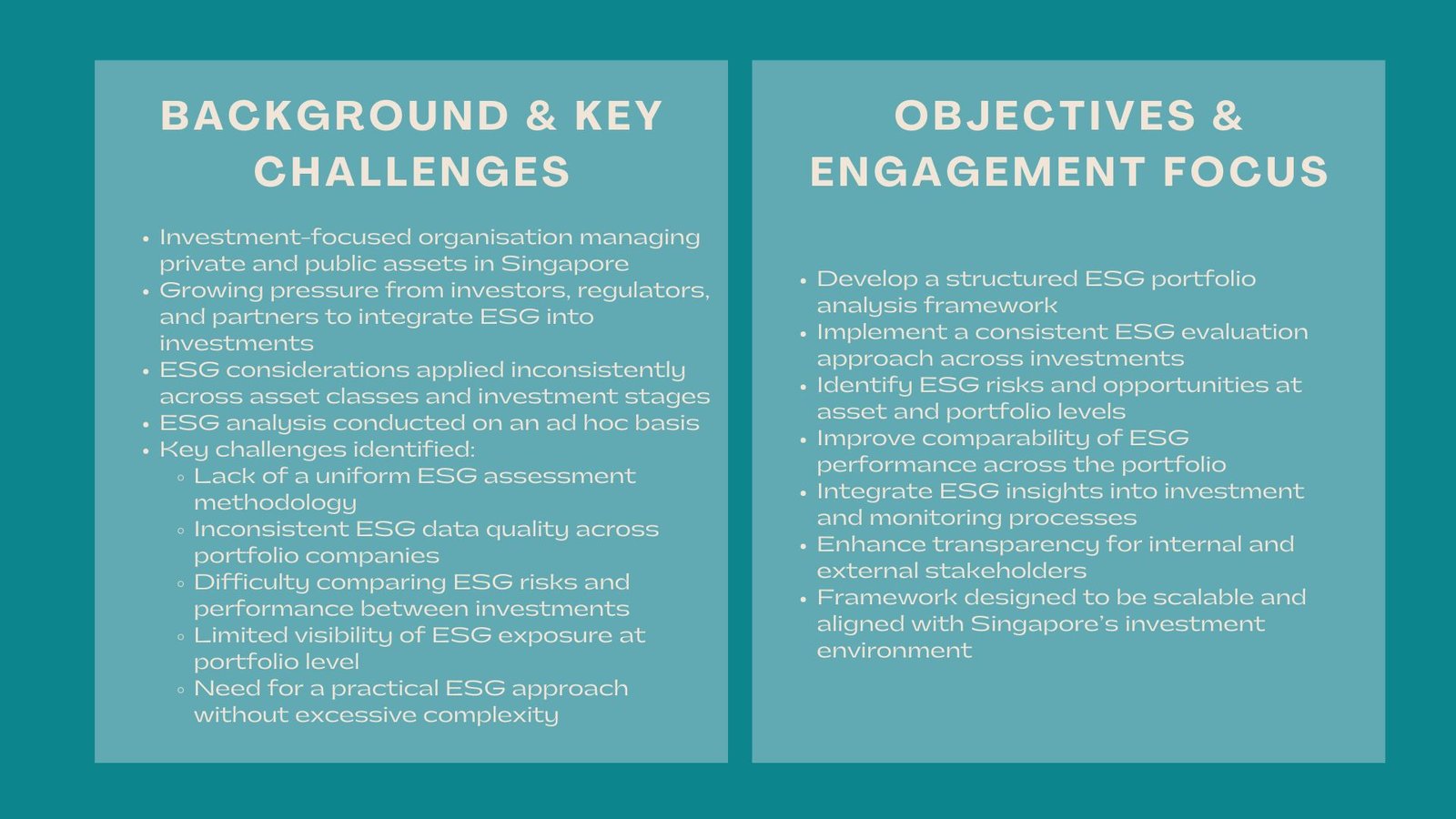Key Factors Influencing ESG Financial and analysis
ESG Financial and Analysis: Assessing Company Competitiveness and Risk in Singapore
Overview of ESG Financial and Analysis: ESG’s Increasing Importance in the Financial Services Sector
- An increasing number of investors are using ESG performance analysis to discover whether investing in certain funds or companies has a positive or negative effect.
- Some studies suggest that corporations with strong environmental, social, and governance (ESG) performance tend to outperform their competitors.
- Overall, the evidence suggests that ESG factors have a low impact on financial performance when considered individually.
- However, this does not mean that they should be ignored – as collectively, they can play a role.
- Research has shown that focusing on a portfolio level allows for significant gains for investors that integrate ESG criteria into their investment decisions.
- There have been many studies assessing the impacts of SRI/ESG strategies from different perspectives.
Definitions: ESG – Environmental, Social, and Governance Standards
- What is ESG Finance Performance:- ESG finance performance provides the opportunity to develop a triple-bottom-line (people, planet, and profit) approach to financial decision-making.
- ESG Finance Analysis:- ESG finance analysis is a way of assessing how ESG components can impact financial processes and outcomes.
ESG Metrics: Quantifying a Company’s Commitment to ESG in Singapore
- For publicly traded companies, ESG metrics are not commonly a mandatory part of financial reporting.
- However, companies are increasingly including it in their annual report statement or a separate sustainability statement.
- There is no standard for calculating and presenting various ESG metrics.
- However, to deal with ESG considerations, investors can utilize other approaches and data sources.
- To help create a more precise detail of ESG risks and opportunities, investors have to understand the relative merits and limits of various metrics.
Important Metrics in a Financial Business: Key Financial Metrics for Business Success
The most important metrics to track when running a financial business are revenue, expenses, and profit.
- Revenue is the total amount of money a company brings in from its products and services.
- Expenses are the costs of doing business, such as salaries, rent, and materials.
- Profit is what’s left after subtracting expenses from revenue.
- It’s also important to track key performance indicators (KPIs). KPIs help businesses measure their progress toward specific goals.
- Common KPIs for financial businesses include net income, return on assets (ROA), and return on equity (ROE).
Fixing Financial Performance: The Impact of ESG on Firm Risk and Financial Performance
Adjusting spending and increasing revenue can improve financial performance. To reduce expenses, businesses may:
- Reduce unnecessary costs by negotiating better deals on supplies and services – Hire part-time workers instead of full-timers to save on benefits.
- Realign staff responsibilities so employees don’t carry out tasks that aren’t necessary.
Boosting Revenue: How ESG Can Boost Your Business Revenue
To boost revenue, the business might:
- Market their products and services more broadly.
- Offer incentives such as loyalty points or discounts to bring in new customers.
- Update their branding or packaging to increase consumer appeal.
- A company’s success depends not only on its actions but also on those of competitors.
- When measuring the impact of competition, it’s important to consider both direct and indirect competitors.
Key factors influencing ESG on financial performance analysis
When it comes to understanding a company’s financial health, ESG factors are more important than ever. Things like environmental impact, fair treatment of employees, and ethical leadership all play a role in long-term success. These key areas aren’t just good practices—they directly affect profits and investor trust. Find out more about the ESG factors that really move the needle financially.
How ESG reporting impacts firm financial performance
Clear, consistent ESG reporting isn’t just about transparency—it can boost your bottom line. Companies that openly share their sustainability and governance practices tend to build stronger relationships with investors and customers alike. This trust often translates to better financial outcomes. See how ESG reporting can strengthen financial performance in real ways.
Relationship between ESG score and company financial performance
A high ESG score often signals more than just good ethics—it’s a strong indicator of financial resilience. Investors are paying attention, and companies with strong ESG ratings are often rewarded with better market performance, lower risk, and improved brand loyalty. Discover how ESG scores tie into financial success.
Impact of ESG practices on long-term financial performance
Doing good can lead to doing well—especially over time. Companies that prioritize sustainability, fairness, and strong governance often find that these values drive steady growth and profitability. ESG isn’t a short-term trend; it’s a long-term strategy for financial strength. Learn why ESG practices matter for the future.
Analyzing the effect of ESG factors on financial outcomes
Want to know what really influences a company’s bottom line today? ESG factors are a big part of the answer. From reducing energy costs to building trust through ethical leadership, these strategies have a measurable impact on financial performance. Get a closer look at how ESG shapes real-world financial results.
Detailed analysis of key ESG factors affecting financial performance in Singapore
In Singapore’s fast-evolving business world, ESG is no longer optional—it’s a financial driver. Companies focusing on cleaner operations, fair labor, and responsible governance are finding new opportunities for growth and investment. Dive into the details of how ESG is reshaping financial performance locally.
Understanding the correlation between specific ESG pillars and financial analysis outcomes
Not all ESG pillars impact finances the same way. For example, strong governance might reduce risk, while smart environmental choices can cut costs. Understanding how each ESG area plays into financial analysis can help companies and investors make smarter decisions. Explore the relationship between ESG pillars and outcomes.
Best practices for analyzing the influence of ESG reporting on corporate financial health
To really see how ESG affects a company’s finances, it helps to follow best practices—like aligning sustainability goals with business metrics and using trusted reporting frameworks. This approach not only builds clarity but also improves decision-making. Check out the best ways to connect ESG reporting with financial insight.
